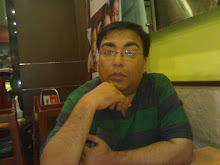
Aruna Shanbaug, who worked as a nurse in a Mumbai hospital was raped and strangulated by a fellow hospital employee in Nov 1973. It has been more than 37 years that she has been living in a vegetative state in a Mumbai hospital. She is forced fed by her care providers. She can not express herself and her medical team believes that she has no chance of any medical improvement. Pinki Virani a Mumbai based journalist and author, who has written a book on Aruna has now moved the Supreme Court of India, requesting that she be allowed to die peacefully.
Euthanasia or mercy killing is illegal in India. The courts have acknowledged the complexity of the issue many a times earlier as well. While the courts may debate the pros and cons of legalizing mercy killings, many people in the medical world believe that allowing terminally ill people to die peacefully is as much a part of good medicine as it is to fight disease. A good doctor knows when it is time to give up and accept defeat against a disease and let the patient go. Prolonging a patient’s agony by keeping him alive in a vegetative state, using machines, which replace human organs is very wrong.
Thus, the critical issue here is when does one decide that time has run out for a patient and accept that nothing more can be done. Can a doctor say with utmost certainty that there is nothing that medical science can do to pull a patient back from the brink? When do we pull the plug and feel no guilt about letting a dear one go? This is where most doctors hesitate, hold on for a little longer, clutch at straws such as minor improvements and hope against hope that a miracle may happen. Doctors too are humans, they are trained to fight to save life and not take it, and they are very uncomfortable in pulling the plug even when they can read the writing on the wall.
I remember the time last year when my grand mother all of 105 years lay critically ill in a hospital in Delhi. She was admitted to the hospital with a gastrointestinal infection, which had seriously dehydrated her. As a consequence of this her electrolyte balance had gone askew and this had impacted her kidneys, which had shut down. The doctors treating her were former colleagues and friends. They tried their level best to save her, managed to get her infection under control with antibiotics, managed to get her electrolytes balance back to normal and put her through many dialysis hoping that her kidneys will restart. We watched helplessly as our grandmother put up a brave fight. She virtually disappeared under the tubes, which seemed to be sticking out from everywhere. We reached a stage, where she and we knew that the end was near. Yet we wanted a miracle to happen, we kept telling the doctors to keep trying and not give up. None of us including our doctors wanted to take the decision, which was but inevitable. Eventually we did realize the futility of our efforts, we asked the doctors to allow us to take her home, where two days later she passed away peacefully.
Now is this euthanasia? Isn’t it how all of us would want to bow out from the world with dignity, in our own beds surrounded by people we love. Won’t we want our doctors to be wise and courageous enough to accept defeat and let us go, rather than needlessly keep fighting against the inevitable. I believe that the canons of medicine do allow doctors to stop treating, when nothing more can be done. Moreover, I would like to believe that the doctors must also help by making once passage as painless as possible and all this should happen with the patient’s or their immediate family’s active and informed consent.
Why shouldn’t we trust our doctors in death as much as we trust them in life? The law must allow doctors to take this final call keeping the best interest of the patient in mind. The law must define a reasonable protocol to be followed for passive and active euthanasia and let the medical folks do their duty as best as they can.

4 comments:
There is a thin line between allowing to die and euthanasia. And deciding is a balancing act.
I have no definitive answer to a question asking which is which, and pity those that have to make the decision
This is a critical issue. But the need is to make more development in treatment of diseases.
These kind of post are always inspiring and I prefer to read quality content so I happy to find many good point here in the post
Anas, I have always thought if you take all of the machines off and the person lives then that is as it should be. If you take all the machines off and they pass away, that is as it should be as well. I disagree with keeping people alive on machines long term. But you take the technology away and they live another person does not have the right to decide they should not exist because they are in a vegetative state.
Post a Comment